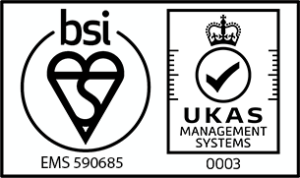Staying motivated and balanced: self-care tips for remote workers
Working from home can be both a blessing and a curse. While it offers great flexibility and convenience, it can also be challenging to stay motivated and balanced in an environment that doesn’t have the same structure as an office.
To help combat this, we’ve put together some top working from home tips and self-care strategies.
In this blog post, we will explore different strategies specifically designed to help you maintain motivation, focus, and wellbeing, including:
- The challenges of remote work and the importance of self-care
- Establishing a routine to stay on track
- Taking breaks and incorporating movement into your day
- Settings boundaries and avoiding overworking
- Nurturing social connections and avoiding isolation
- Prioritising self-care practic
The challenges of remote work and the importance of self-care
Working remotely can present unique challenges that can impact motivation and overall well-being. Without the structure and social interactions of an office environment, it’s easy to feel isolated and disconnected. Additionally, the lines between work and personal life can blur, making it difficult to switch off and find balance.
One of the biggest challenges of remote work is the lack of social interaction. Humans are social creatures, and without regular face-to-face interactions, it’s easy to feel isolated and lonely. This can have a negative impact on mental health and motivation.
It’s important to find ways to connect with others, whether it’s through virtual team meetings, online networking events, or even just scheduling regular catchups with colleagues and friends.
Another challenge is establishing a work-life balance. When the office is also your home, it’s easy to find yourself working longer hours and neglecting self-care. It’s crucial to set boundaries and create a dedicated workspace where you can mentally switch off from work at the end of the day.
Prioritising self-care, such as taking breaks, engaging in physical activity, and practicing mindfulness, can help maintain motivation and prevent burnout.
Recognising the challenges of remote work and prioritising self-care are crucial for maintaining motivation and overall well-being.

Establishing a routine to stay on track
Working from home can blur the lines between work and personal life, making it essential toestablish a routine that keeps you on track. By creating a structured schedule, you can maintain productivity and balance throughout your workday.
Start by setting specific work hours and sticking to them. This will help you establish a sense of routine and create boundaries between work and personal time. Be consistent with your start and end times to ensure a sense of normalcy and prevent burnout.
Another working from home tip is to incorporate regular breaks into your routine. Taking short breaks throughout the day can boost productivity and prevent mental fatigue. Use this time to stretch, walk around, or do something enjoyable. Stepping away from your workspace can help clear your mind and improve focus when you return.
Plan your tasks and prioritise them based on importance and deadlines. Breaking down yourworkload into manageable chunks can make it less overwhelming and keep you focused on one task at a time. Consider using productivity tools or techniques, such as Pomodoro Technique, to stay organised and maximise efficiency.
Lastly, establish a morning routine to kickstart your day. Engaging in activities like exercise, meditation, or journaling can set a positive tone and help you transition from personal time to work time.
By establishing a routine that includes consistent work hours, task prioritisation, and a morning routine, you can stay on track, maintain motivation, and create a healthy work-life balance while working from home.

Taking breaks and incorporating movement into your day
It’s easy to get caught up in tasks and forget to give yourself time to recharge. However, taking regular breaks is essential for maintaining productivity, focus, and overall well-being.
One effective working from home tip is to ensure you take breaks is to schedule them into your day. Set reminders on your phone or use productivity apps to prompt you to step away from your workspace.
During your breaks, engage in activities that promote movement and relaxation. Stretch yourlegs, go for a short walk, or do a quick workout. Moving your body can increase blood flow, improve posture, and release tension, which can have a positive impact on your mood and productivity.
In addition to physical movement, breaks can also be an opportunity to engage in activities that help you mentally recharge. Take a few moments to meditate, practice deep breathing, or engage in a creative hobby. These activities can help reduce stress, clear your mind, and improve your ability to focus when you return to work.
Remember, breaks are not a luxury; they are a necessity for maintaining productivity and overall well-being. So, don’t be afraid to step away from your workspace, move your body, and give yourself time to recharge throughout the day.

Setting boundaries and avoiding overworking
Without the physical separation of an office, it can be difficult to switch off and create a healthy work-life balance. That’s why setting boundaries is essential for remote workers.
First, establish clear start and end times for your workday. Stick to these times as much as possible to maintain consistency and avoid the temptation to overwork. Communicate theseboundaries to your colleagues and clients so they know when you’re available and when you’re not.
Creating a dedicated workspace is crucial for setting boundaries. Designate a specific area in your home for work and avoid working in other parts of your living space. When you step into your workspace, it signals to your brain that it’s time to focus on work. Likewise, when you leave that space, it’s time to mentally switch off and attend to your personal life.
It’s important to resist the urge to constantly check your work email or respond to messages outside your designated work hours. Give yourself permission to disconnect and recharge. This will not only prevent burnout but also improve your overall productivity and well-being.
Nurturing social connections and avoiding isolation
Working remotely can often feel isolating and lonely, especially when you’re used to the social interactions and camaraderie of an office environment.
However, nurturing social connections is essential for maintaining motivation and overall well-being. Here are some strategies to help you avoid isolation and stay connected while working from home:
- Make an effort to schedule regular virtual team meetings or catch-ups with colleagues. This can help recreate the sense of community and collaboration that youmight be missing. You can also join online networking events or industry-specific forums to connect with like-minded professionals and expand your network.
- Join virtual coworking spaces or communities. These platforms allow you to connect with other remote workers, share idea, and engage in virtual co-working sessions. It’s a great way to combat loneliness and stay motivated through the support and accountability of others.
- Take time to schedule regular catchups or virtual coffee dates with your loved ones. It’s important to nurture these personal connections and maintain a healthy work-life balance.
- Don’t be afraid to reach out for support or seek out online communities that focus on remote work and self-care. Engaging with others who are going through similar experiences can provide a sense of belonging and valuable insights.
Remember, you’re not alone in this remote work journey, and reaching out to others is essential for maintaining your well-being.

Prioritising self-care practices
One powerful tip to incorporate into your working from home routine is mindfulness. Taking a few moments each day to practice mindfulness can help reduce stress, increase focus, and promote a sense of calm. Whether it’s through meditation, deep breathing exercises, or simply taking a moment to be present in the current moment, mindfulness can have a profound impact on your mental and emotional well-being. Additionally, relaxation techniques can help you unwind and recharge after a long day of work. Consider incorporating activities such as taking a warm bath, reading a book, listening to calming music, or engaging in a hobby you enjoy. These practices can help you relax both your mind and body, allowing you to rejuvenate and find balance.
Another way to boost general well-being is with the Duux Tag Ultrasonic Humidifier. Not only does it add moisture to the air and improve the quality of your indoor environment, butit also has an amazing impact on your mood.
Dry air can cause feelings of lethargy, discomfort, and general lack of wellbeing. However, the Duux Tag changes all that, helping you to feel energised, alert, and revitalised. It helps you relax, reduce stress and anxiety, while prompting better sleep and respiratory health.
Don’t forget about the importance of self-care when it comes to your physical health as well. Make sure you are getting enough sleep, eating nutritious meals, and engaging in regular exercises. Taking care of your physical heath can have a positive impact on your energy levels and overall well-being.
Summary
Working remotely offers flexibility and convenience, but it can also be isolating and blur the boundaries between work and personal life. To combat these challenges, it’s important to establish a routine that includes specific work hours, breaks, and a morning routine.
Additionally, setting clear boundaries can help to avoid overworking and create a healthy work-life balance. Implementing self-care strategies and working from home tips you can maintain motivation, focus, and overall well-being while navigating the remote work landscape.




